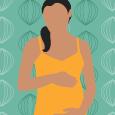June 2011 Moms
 DreamChaser246
member
DreamChaser246
member
Pasturized Cheese Question
So I have been reading the backs of cheese (or when I get things made with cheese) and what is important... that the cheese is made with pasturzied milk or that the cheese is pasturzied (can you even pasturize cheese)? Does it matter? I've googled but not come up with a lot other than watch out for unpasturzied cheeses.
Also, if its not clear that a cheese is pasturzied (such as the Trader Joe's frozen pizza that I was wanting the other day) is it OK if it ends up being baked? Or should I just steer clear if I'm not sure?
Thanks!
This discussion has been closed.







Re: Pasturized Cheese Question
I think the only difference in "pasteurized milk" as an ingredient and "pasteurized cheese" is the wording the maker used . ( I could be wrong) However, if the cheese does not say pasteurized anywhere, it likely is not pasteurized.
I have no idea how baking it would effect the cheese though.
ETA: also, I think that that Trader Joes may not list that the cheese is pasteurized in the pizza ingredients.
June Bugs Blog
Good grief. Trust me. You'll be hard pressed to find cheese in the U.S. that's not pasteurized. Really.
The only ones you need to worry about are soft imported cheeses (not mass produced cheese on pizza). Even then, the possibilities are remote of contracting something that will hurt you. No worries!
You should be concerned about whether the milk is pasteurized, not the cheese. If it is heated until steaming and you eat it hot, such as baked brie, it is safe. This is a good reliable resource for food questions. https://www.mayoclinic.com/health/pregnancy-nutrition/PR00109
I don't have any advice, I have a question........
What about queso dip at Mexican resturants? What are thoughts about that?
Thanks everyone. I mostly get my cheeses for TJs or our local small grocery store, and though I don't normally get many of the fancy soft cheeses its just been a curiosity thing for me. I know that most in the US is pasturized. I know most are OK, I was just looking through the appetizers at TJs which contain cheese (such as feta and I forget the other cheese that I was unsure about) and though they are baked, none said pasturized. I was just curious.
I ended up with food poisining/stomach bug from Vegas a few weeks ago, so I am just trying to be aware. That and I was just curious regarding the labeling.
My pregnancy book says "Avoid cheeses [and all dairy products] unless they clearly state that they have been pasteurized or made with pasteurized milk." Specifically, cheeses to avoid would include Brie, Camembert, Feta, Blue-veined cheeses (formerly my favorite, but I don't think I would be able to stomach them these days!), Roquefort, Gorgonzola and Mexican cheeses like queso blanco and queso fresco.
I also think that you would be fine once the cheese is baked. The problem with these cheeses is the possibility of Listeria, which you can also get from raw lunch meats. So, I believe the baking or heating to steaming would definitely kill any bacteria.
I specifically asked my doctors about this last time and they all said that even soft cheese will be okay almost ALL of the time. The only unpasturized cheese I have found have been in my local farmers' market and in fancy cheese stores. Ask your doctor if you are concerned, but most of the time, if you buy it from a grocery store you will be okay.
I think it's not going to specifically say "pasturized" on a frozen pizza box because it's assumed that it is.
For heaven's sake, queso is as far from unsafe as you get - not only is it usually made with velveeta or some variation of it (i.e. American & pasteurized), it is heated up and thus would be safe to eat even if it did contain something unpasteurized. Specialty cheeses like those you'd find on a cheese board (brie, camembert, etc) at a restaurant/bar and in your specialty cheeses section at your grocery store are the ones to be concerned about, and only if served cold. As a PP mentioned, if brie is served baked or en croute (wrapped in pastry dough and baked) it is then safe to eat. When in doubt, heat it up.
The only thing you need to worry about when eating queso is your waistline and the fact that you aren't really feeding baby anything of nutritional value.
Although I'm not sure domestic soft cheese is always pasteurized. Your normal everyday cheese, like shredded mozzarella in a bag and American cheese from the deli, is going to be pasteurized.
And it is the milk that's pasteurized not the end product cheese.